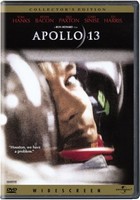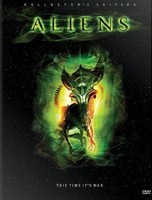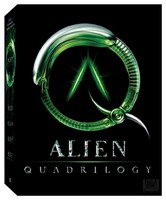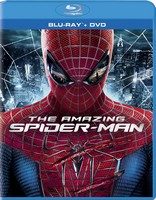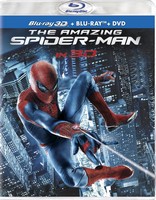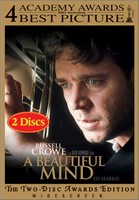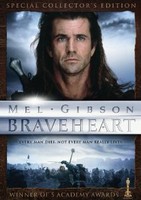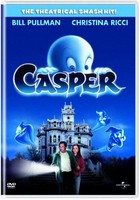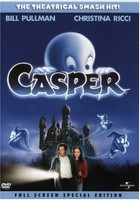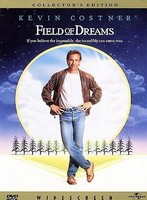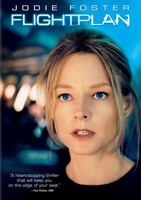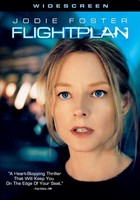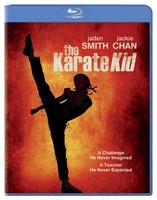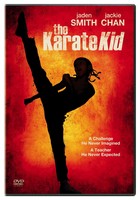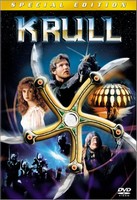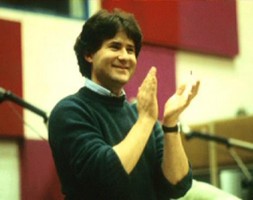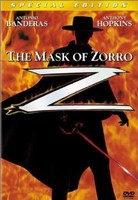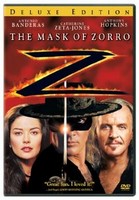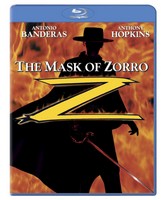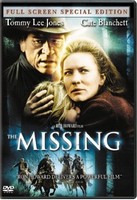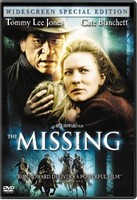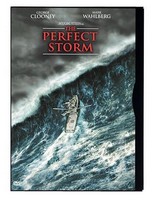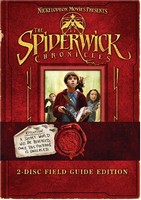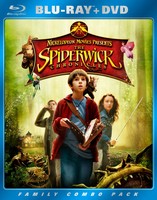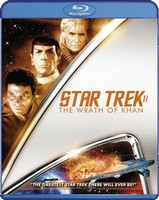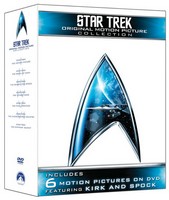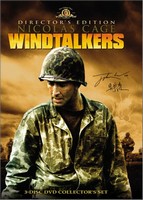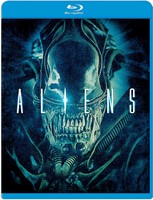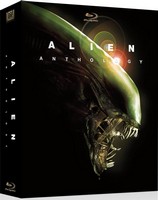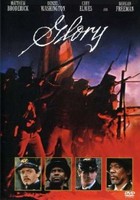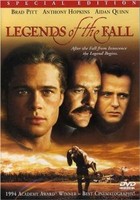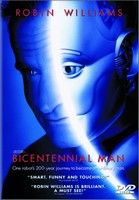[divider]ALIENS (1986)[/divider]
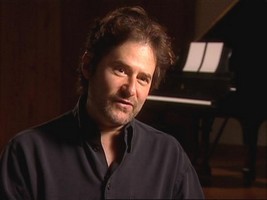 Documentary title: The Final Countdown
Documentary title: The Final Countdown
Sequence time: 9'22
James Horner reflects on the difficult conditions in which he had to compose and record the soundtrack. He says that when he arrived in London, the film was not completed. He therefore composed 97 minutes of music within 15 days. The aging equipment during recording sessions, sleepless nights and icy relations with producer Gale Anne Hurd, are all explained in this documentary.
© 20th Century Fox
[divider]THE AMAZING SPIDER-MAN (2012)[/divider]
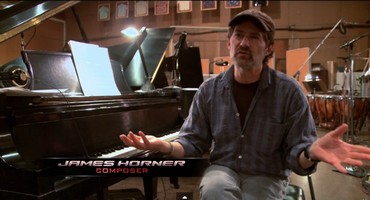 Documentary title: Rite of Passage – The Greatest Responsibility: Post-Production and Release
Documentary title: Rite of Passage – The Greatest Responsibility: Post-Production and Release
Sequence time: 5'20
Firstly, Marc Webb reflects on the creation of the main theme. He explains that James Horner would always excel in creating a very specific, simple theme that he could play with one hand on a keyboard.
Then we can see James Horner conducting a part of the track Becoming Spider-Man. Moreover, he speaks about the piano motif, which is heard throughout the album.
Finally the two men conclude by recalling the two main components of the film: the dramatic and intimate sides.
© Sony Pictures Home Entertainment
[divider]A BEAUTIFUL MIND (2001)[/divider]
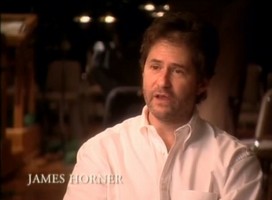 Documentary title: In Scoring the Film
Documentary title: In Scoring the Film
Sequence time: 6'00
In this short video interview with composer James Horner along with director Ron Howard, producer Brian Grazer gives us great insight about music composition for the film A Beautiful Mind.
It starts with director and producer telling about the ease that composer will bring for them to discuss their ideas musically. Then James Horner talks about his collaboration with Ron Howard, his way of approaching every film and explains how he musically transcribed the idea of numbers throughout this film. He speaks about vocalist Charlotte Church and the essence of having vocals combined with music in a film like this.
In the last few minutes Charlotte Church talks about her experience with James Horner and about his working style. The video ends with composer telling of his willingness to do this subject and his wish to make this movie very real. Excerpts from the score with Charlotte Church's voice can be heard throughout the video. Also a few clips from the movie and from the scoring sessions are inserted in the interview.
The Dvd also contains a commercial for the CD named Beautiful Mind Soundtrack.
© Universal Pictures
[divider]AVATAR (2009)[/divider]
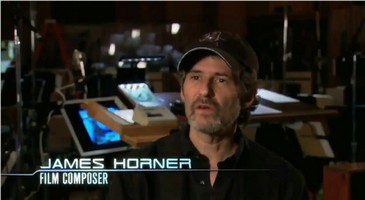 Documentary title: Scoring Avatar
Documentary title: Scoring Avatar
Sequence time: 6'06
The producer John Landau opens this sequence by defining the challenge James Horner faced for the film. We can see the composer on the set when recording tribal instruments; he tells us that the music was at first very ethnic. He explains his approach to give the impression to hear new sounds. We also see him working with both professional singers (Clyden Jackson and Terry Wood) on vocals along with the Na'vi linguist Paul Frommer. The sequence continues on a mix of images from the film and from the recording sessions. Finally James Cameron praises the qualities of music while giving his view of film music.
Notes: On Disc 2, Filmmaker's Journey – Capturing Avatar – Part Four, we have a condensed version (4'20) of this documentary. Immediately after this sequence we can see James Horner during the end of production speech given by James Cameron in the canteen of the studio.
Then in the short film The volume following the incredible adventures of Devin Korman, a motion capture actor who went crazy after too many hours on the set, we can also see the composer. Indeed at the 21st minute Devin Korman enters the recording stage and sits among the violinists. James Horner asks him if he is comfortable and ready to start at the first bar. A few seconds after the beginning of the cue, the security takes him.
© 20th Century Fox
[divider]BRAVEHEART (1995)[/divider]
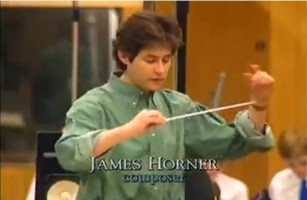 Documentary title: Alba gu Brath! The Making of Braveheart
Documentary title: Alba gu Brath! The Making of Braveheart
Sequence time: 4'30.
In this documentary, Mel Gibson and film editor Steven Rosenblum discuss the role of music and its importance in a film. We can see scoring session footage with a children's choir and after that Mel Gibson talks about the score for the film and how it fitted the movie. He expresses his delight for the score and praises James Horner for delivering such a great score for his movie. He tells about the hard work of people involved in the orchestra every day during that scoring period.
© Paramount
[divider]CASPER (1995)[/divider]
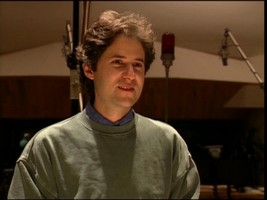 Documentary title: Revealing Casper – Composing Casper : The Magical Score
Documentary title: Revealing Casper – Composing Casper : The Magical Score
Sequence time: 2'30
In this short sequence James Horner explains his approach to the film. We also see him giving instructions to the musicians and conducting the orchestra. Images of the films are shown, too. Director Brad Silberling introduces and concludes this sequence evoking the qualities of the music and of the composer.
© Universal Pictures
[divider]FIELD OF DREAMS (1989)[/divider]
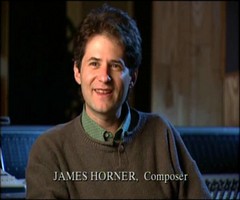 Documentary title: The Field of Dreams Scrapbook
Documentary title: The Field of Dreams Scrapbook
Sequence time: 12'00
Exceptional in its quality and duration, this documentary is introduced by Phil Alden Robinson, who first tells an anecdote about James Horner's first vision of the film. At the end of the projection the composer left the room without saying a word. Everyone thought he had found the movie bad. Instead he was upset. For several minutes, the two men then exchanged, recalling the temporary music, the chosen approach, which opposed that expected by producers, the recording with Ian Underwood, Tony Hinnigan and Mike Taylor, the various instruments used and their meanings. In the middle of this discussion James Horner plays the themes on the piano from memory and comments with the director.
© Universal Pictures
[divider]FLIGHT PLAN (2005)[/divider]
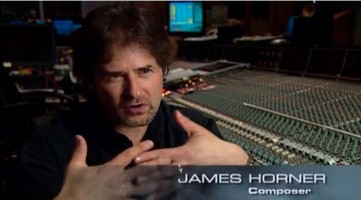 Documentary title: The In-Flight Movie: The Making of Flightplan
Documentary title: The In-Flight Movie: The Making of Flightplan
Sequence time: 3'25
In this three-minute short video documentary, James Horner describes the relation between sound effects and music, the director's way of showing the characters in the movie and then he tells of the reasons why he uses instruments like balinese gamelan, prepared piano to make weird sounds and the string section in orchestra. Then we can see scoring sessions and short clips from the movie.
© Buena Vista Home Entertainment / Touchstone
[divider]HOLLYWOOD IN VIENNA: THE WORLD OF JAMES HORNER (2013)[/divider]

 Time: 181'
Time: 181'
This blu-ray release from Varèse Sarabande contains the complete Hollywood in Vienna concert of 2013, which celebrated the musical achievements of James Horner. In 1080i and 5.1 surround sound, the concert contains pieces from Legends of the Fall, Titanic, Braveheart, and a memorable "James Horner Medley," and others. Near the end of the concert, James Horner receives the Max Steiner Film Music Achievement Award, and delivers a heart-felt acceptance speech.
Additional content:
Symposium: In this 75-minute presentation of the forum led by Robert Townson, James Horner shares insights into his creative process, his relationship with directors, his approach to specific projects (A Beautiful Mind, Braveheart…), and more. (Note: the film excerpts shown during the symposium are not included in this presentation.)
In Memoriam: An edited video tribute combining moments from the concert, which was originally released by Hollywood in Vienna here: In Memoriam
Photo gallery: containing pictures from the event.
Booklet: containing photos and notes on the concert.
© Varèse Sarabande
[divider]JAMES HORNER SEMINAR (1992)[/divider]
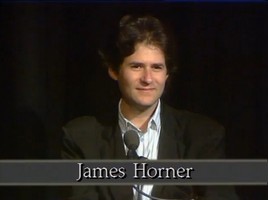 Time: 52'
Time: 52'
Recorded at the Australian Film Television and Radio School (AFTRS). James Horner talks about his approach on scoring for a film, his relationship with the film directors, film politics, and the use of songs and other pre-written music within a film score. Includes clips from films for which he wrote the music.
© artfilms
[divider]THE KARATE KID (2010)[/divider]
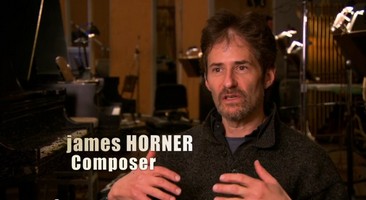 Documentary title: Just for Kicks: The Making of The Karate Kid (Scoring The Karate Kid)
Documentary title: Just for Kicks: The Making of The Karate Kid (Scoring The Karate Kid)
Sequence time: 3'20
This video documentary begins with director Harald Zwart, who speaks about music recording and how much he loves that stage in the process of movie making. He talks about James Horner and expresses his happiness for having him on his movie.
Then we can see the composer conducting the orchestra in clips from the scoring sessions. James Horner explains why he used instruments like Chinese drums in this film and talks about the subject and about the melody he wants to create. He appreciates director Harald and producer Will Smith for their idea to use hip hop songs less.
Finally the video ends with director telling the emotional impact of the music on the film in the final stage. We can see some clips from the movie along with scoring sessions.
© Sony Pictures Home Entertainment
[divider]KRULL (1983)[/divider]
© Sony Pictures Home Entertainment
Seven pictures (low definition) showing a young James Horner during the recording sessions. You can find these pictures in the gallery "Behind the Scenes".
[divider]THE MASK OF ZORRO (1998)[/divider]
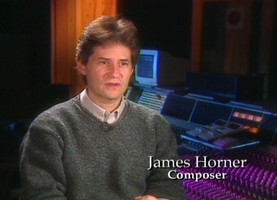 Documentary title: Unmasking Zorro
Documentary title: Unmasking Zorro
Sequence time: 2'19
This short video documentary starts with director Martin Campbell describing that the contribution of James Horner's music for the film was enormous.
Then the composer talks about his interest in this Zorro and explains why he loved doing this film, why he used the shakuhachi, and the unusual way of handling sword fights in the movie.
In the final few minutes of the video we can see some video clips from the movie.
© Sony Pictures Home Entertainment
[divider]THE MISSING (2003)[/divider]
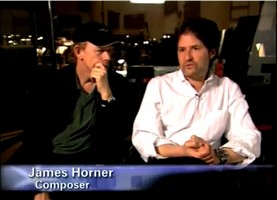 Documentary title: The Modern Western Score
Documentary title: The Modern Western Score
Sequence time: 3'10
The video documentary starts with voice over telling about the collaboration of director Ron Howard and composer James Horner.
The interview begins with the director sharing his work experience with the composer and the importance of music and how it will enhance the film.
Then James Horner talks about his reaction, working style, and idea to write Native American music.
In the final few minutes of this video, James Horner says his and Ron Howard's aim was to bring emotional experience to the audience. We can see short clips from the scoring sessions and from the movie throughout the video.
© Sony Pictures Home Entertainment
[divider]THE PERFECT STORM (2001)[/divider]
Warning: this documentary is not featured on the 2007 DVD edition.
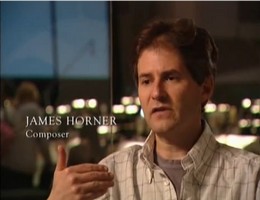 Documentary title: Creating Emotion
Documentary title: Creating Emotion
Sequence time: 4'15
The documentary begins with James Horner ready to conduct the orchestra. He explains his desire to make friendly themes to accompany the sailors in the film. The composer sheds light on the process of composition from a rough cut of the film, and the dialogue with the director Wolfgang Petersen upon draft themes after a second editing of the film.
We are briefly immersed in the heart of the recording of a track. James Horner says he conducts cues while watching the movie. With the director he mixes a crescendo over a sequence. Impressed by the result, the studio team applauds the composer.
James Horner concludes the documentary by underlining his desire to continue to compose music for films.
© Warner Home Video
[divider]THE SPIDERWICK CHRONICLES (2008)[/divider]
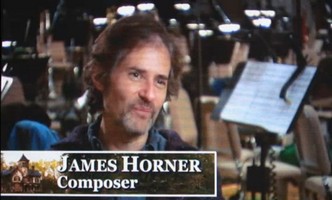 Documentary title: Making Spiderwick!
Documentary title: Making Spiderwick!
Sequence time: 2'50
This short video documentary starts with a clip from the movie. Then we can see James Horner in a scoring session footage. The director and the producer then talk about composer James Horner's ability to score memorable melodies to each character in the movie.
James Horner talks about the script of the movie, the instruments he used to represent the two important characters and also about themes he used for characters and for the whole movie.
In the final few minutes we can see James Horner conducting the orchestra.
© Paramount
[divider]STAR TREK II (1982)[/divider]
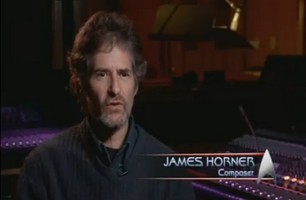 Documentary title: James Horner: Composing Genesis
Documentary title: James Horner: Composing Genesis
Sequence time: 8'45
This documentary begins with James Horner speaking about the Star Trek series and how much he knew them. He talks about his meeting with composer Jerry Goldsmith, his experience with director Nicholas Meyer and further describes about how important to have director's support to compose new themes.
Then after some clips from the movie, James Horner speaks about the new Star Trek theme. He then sings a few important characters themes while explaining the importance of having characters themes in a movie, either in battle scenes or for close scenes between two characters.
The video ends with James Horner speaking about the musical seeds he put in Star Trek II, which will blossom in Star Trek III and also about how much music can enhance a film.
© Paramount
[divider]WINDTALKERS (2002)[/divider]
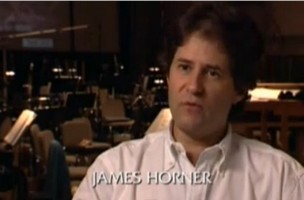 Documentary title: The Music of Windtalkers
Documentary title: The Music of Windtalkers
Sequence time: 5'00
This documentary begins with James Horner conducting the orchestra and afterwards he talks about the role of a music composer in the process of film making and what contribution he can give to a movie in the final stages.
He then mentions the relation he should have with both editor and director.
We can see again James Horner conducting the orchestra and talking about his ideas, his way of writing for this movie and he mainly speaks about creating a musical voice that comes after battle scenes.
Finally he tells of his love for film music and the emotion coming from the marriage between his music and a film.
© MGM
***** ISOLATED SCORES *****
[divider]Aliens (1986)[/divider]
The music can be listen to alone with the images, by selecting the corresponding audio track.
Two tracks are available:
Final theatrical isolated score by James Horner.
Composer’s original isolated score by James Horner.
[divider]Glory (1989)[/divider]
The music can be listened to alone with the images, by selecting the corresponding audio track.
[divider]Legends of the Fall (1994)[/divider]
The music can be listened to alone with the images, by selecting the corresponding audio track.
[divider]Bicentennial Man (2000)[/divider]
The music can be listened to alone with the images, by selecting the corresponding audio track.
[divider]Apollo 13 (1995)[/divider]
Apollo 13 – Single-disc Collector's Edition [Dvd] (1998)
If you remain on the menu screen you could listen to the same 12 tracks as heard on the "For Your Consideration" Academy Award promotional album.
It starts whenever you hit your 'Menu' button to bring up the main menu and will keep on playing all the way to the end. You can advance in the score by pressing the 'Skip' button on your remote control.
[divider]Field of Dreams (1989)[/divider]
From the Bonus Materials menu, click on The Field of Dreams Scrapbook. Now, click on Language Selection. Next, click on Spoken Languages. Click on Musical Score to listen to the entire score, which plays continuously over the first 50 minutes of the documentary.
 Documentary title: The Final Countdown
Documentary title: The Final Countdown Documentary title: Rite of Passage – The Greatest Responsibility: Post-Production and Release
Documentary title: Rite of Passage – The Greatest Responsibility: Post-Production and Release
 Documentary title: In Scoring the Film
Documentary title: In Scoring the Film
 Documentary title: Alba gu Brath! The Making of Braveheart
Documentary title: Alba gu Brath! The Making of Braveheart
 Documentary title: Revealing Casper – Composing Casper : The Magical Score
Documentary title: Revealing Casper – Composing Casper : The Magical Score
 Documentary title: The Field of Dreams Scrapbook
Documentary title: The Field of Dreams Scrapbook
 Documentary title: The In-Flight Movie: The Making of Flightplan
Documentary title: The In-Flight Movie: The Making of Flightplan
 Time: 181'
Time: 181'
 Documentary title: Just for Kicks: The Making of The Karate Kid (Scoring The Karate Kid)
Documentary title: Just for Kicks: The Making of The Karate Kid (Scoring The Karate Kid)
 Documentary title: Unmasking Zorro
Documentary title: Unmasking Zorro
 Documentary title: The Modern Western Score
Documentary title: The Modern Western Score
 Documentary title: Creating Emotion
Documentary title: Creating Emotion
 Documentary title: Making Spiderwick!
Documentary title: Making Spiderwick!
 Documentary title: James Horner: Composing Genesis
Documentary title: James Horner: Composing Genesis
 Documentary title: The Music of Windtalkers
Documentary title: The Music of Windtalkers
